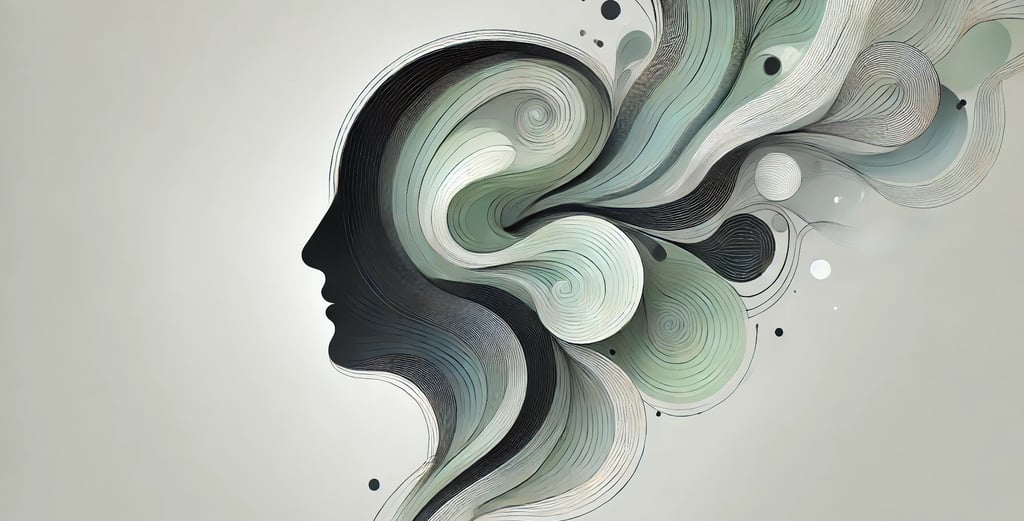The Extrovert I Never Knew I Was: Rethinking Self-Perception
A thought-provoking exploration of identity and self-perception when the author, a self-proclaimed introvert, discovers colleagues and friends unanimously view them as an extrovert. This personal revelation leads to reflection on why we cling to certain labels, how personality traits exist on a spectrum rather than in binaries, and the freedom that comes from embracing our multifaceted nature.
Aicha
3/17/20253 min read


Have you ever been so certain about who you are, only to discover that others see you completely differently? Recently, I had one of those perspective-shifting moments that made me question how I've labeled myself for years.
The Shocking Revelation
It happened during a casual conversation with colleagues about personality types. We were discussing the classic introvert-extrovert spectrum, and I naturally assumed everyone saw me as I saw myself—an introvert. When I asked a colleague directly how she perceived me, her answer caught me completely off guard: "You're an extrovert."
I immediately found myself on the defensive. "No, no, I'm not an extrovert," I insisted. "I might come across that way because I've learned those skills, but deep down, I'm an introvert. I cherish my alone time."
The conversation ended there, but it stayed with me. That evening, I messaged a friend about the incident, expecting her to confirm my self-perception. Instead, she delivered another blow: "From the day I met you, you've been an extrovert. You are an extrovert."
I was shocked—and strangely disappointed. Why was I so resistant to being seen as an extrovert?
Reexamining Memory Through a New Lens
This unexpected feedback sent me on a journey through memories, revisiting situations with fresh eyes. I thought about my childhood best friend, who was undeniably introverted—quiet, shy, reserved. In contrast, I would speak up in class, even answering questions directed at her. If that's not extroverted behavior, what is?
The Swiss psychologist Carl Jung, who first popularized these terms in the 1920s, defined extroversion as being energized by external stimulation and social interaction, while introversion meant drawing energy from internal reflection and solitude. Looking back honestly, I realized I often thrived in social settings rather than feeling drained by them, particularly when with people I trusted.
The Contextual Nature of Personality
What I began to understand is something research has increasingly supported: personality traits aren't fixed absolutes but contextual expressions. According to psychologist Brian Little's concept of "free traits," we can act "out of character" in pursuit of core personal projects or when with different people.
I noticed this pattern in myself—when with my shy friend, I became more outgoing, as if her presence freed something in me. When alone, I retreated into what I considered my "true" introverted nature.
But what if both expressions were authentic parts of me?
Why Do We Cling to Our Labels?
The more interesting question became: why was I so attached to identifying as an introvert? Why did being called an extrovert feel almost like criticism?
Our culture has increasingly romanticized introversion. Since Susan Cain's influential book "Quiet" was published in 2012, introversion has been rebranded from a potential social liability to a marker of depth, creativity, and thoughtfulness. Articles with titles like "Why Introverts Are Actually a Lot More Powerful Than Extroverts" populate our feeds. As someone who values creativity and depth, I had unconsciously absorbed the narrative that these qualities belong primarily to introverts.
The truth is more nuanced. Research by Adam Grant and other organizational psychologists has found that creativity and insight can flourish in both personality types, just through different pathways. Extroverts often generate creative ideas through dialogue and collaborative energy, while introverts might do so through solitary reflection.
The Rigidity of Self-Perception
This experience highlighted something universal: how rigidly we cling to our self-perceptions, even in the face of contradictory evidence. Psychologists call this "self-verification theory"—we prefer feedback that confirms our existing self-view, even if that view is negative.
Think about it: how many aspects of your identity have you labeled and then defended, despite evidence suggesting you might have evolved or changed? We see change in others so clearly, yet remain blind to our own transformations.
The Spectrum of Personality
Modern personality research has moved away from the binary introvert-extrovert division. Psychologists like Hans Eysenck proposed that these traits exist on a continuum, with most people falling somewhere in the middle—what he termed "ambiverts."
I think of it like the autism spectrum I briefly mentioned. None of us are purely one thing. The Arabic word for autism—"tawahhud"—shares roots with words meaning solitude or uniqueness. In a sense, we all have unique aspects developed in solitude, just as we all have social facets that emerge in connection.
Embracing the Paradox
Perhaps instead of resisting others' perceptions, we might pause and question our attachment to the labels we've given ourselves. What if I am both introverted AND extroverted, depending on context, comfort, and connection?
The psychologist Carl Rogers once wrote that "the curious paradox is that when I accept myself just as I am, then I can change." There's freedom in releasing the need to fit neatly into one category or another.
So I'm learning to be curious rather than defensive when someone sees me differently than I see myself. Their perspective offers a window into aspects of my personality that might be invisible to me—the blind spots in my self-awareness.
A Question for You
I wonder how many of you have experienced something similar—discovering that how others perceive you differs dramatically from your self-image? What labels do you cling to most tightly, and what might happen if you held them more loosely?
Perhaps our truest nature isn't found in either/or categories, but in embracing the beautiful complexity and contradictions that make us human.
Contacte me
